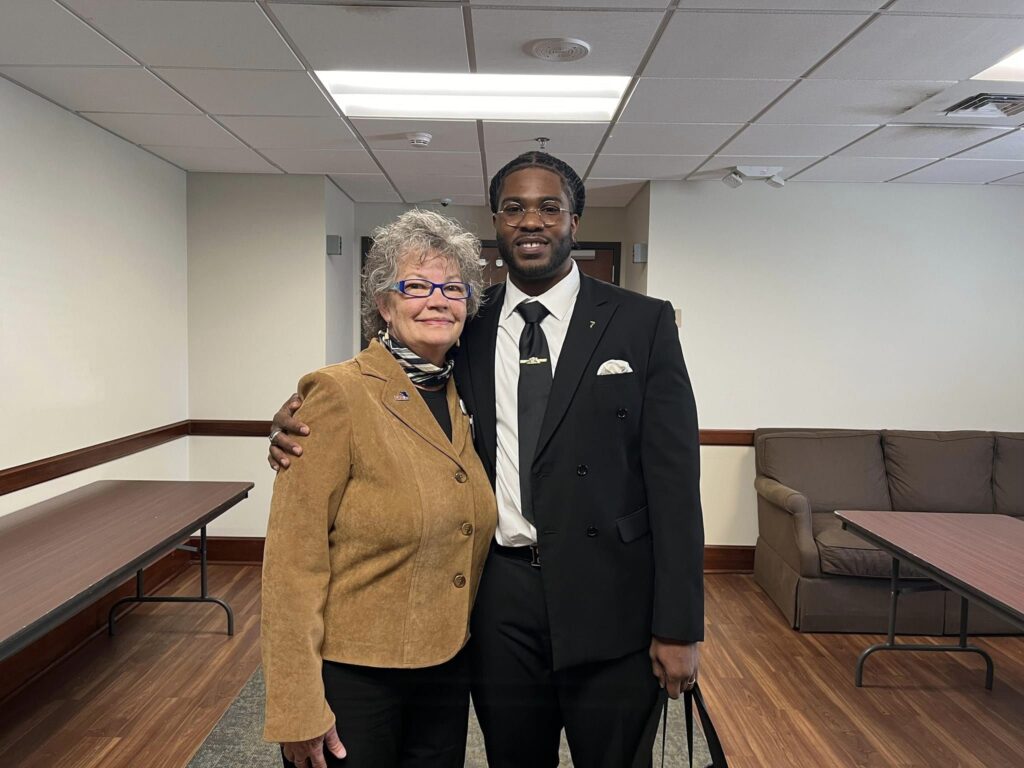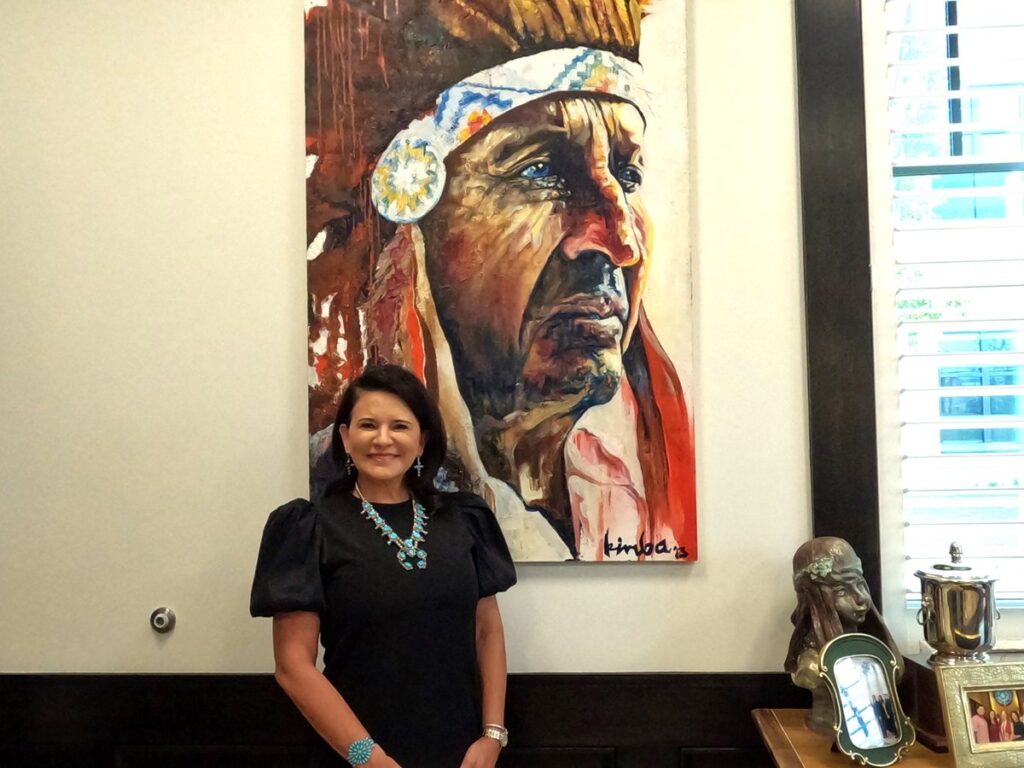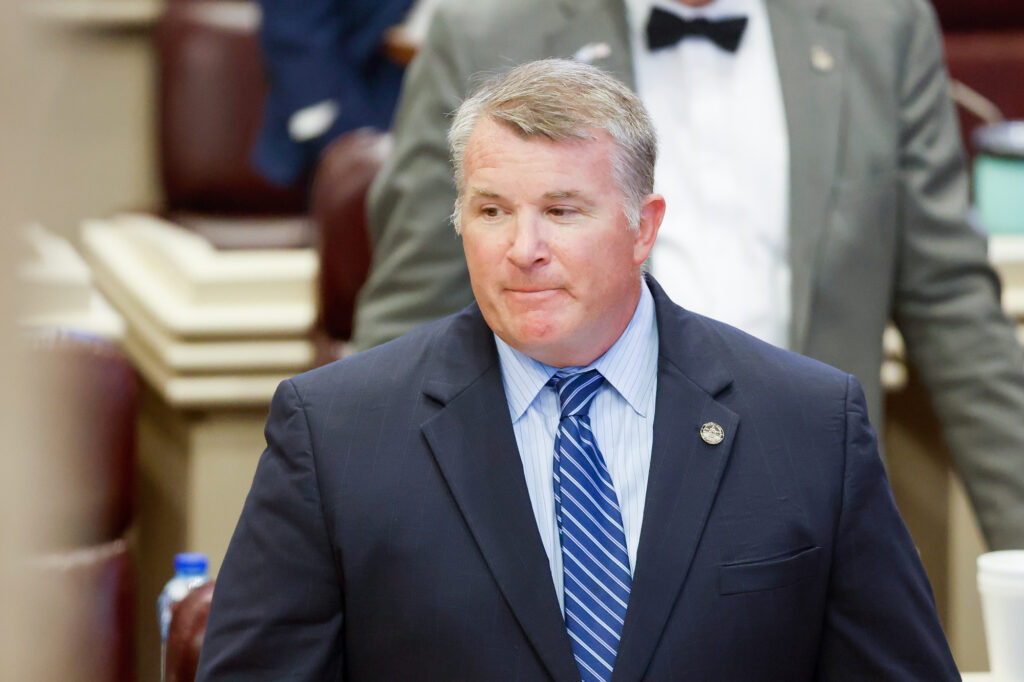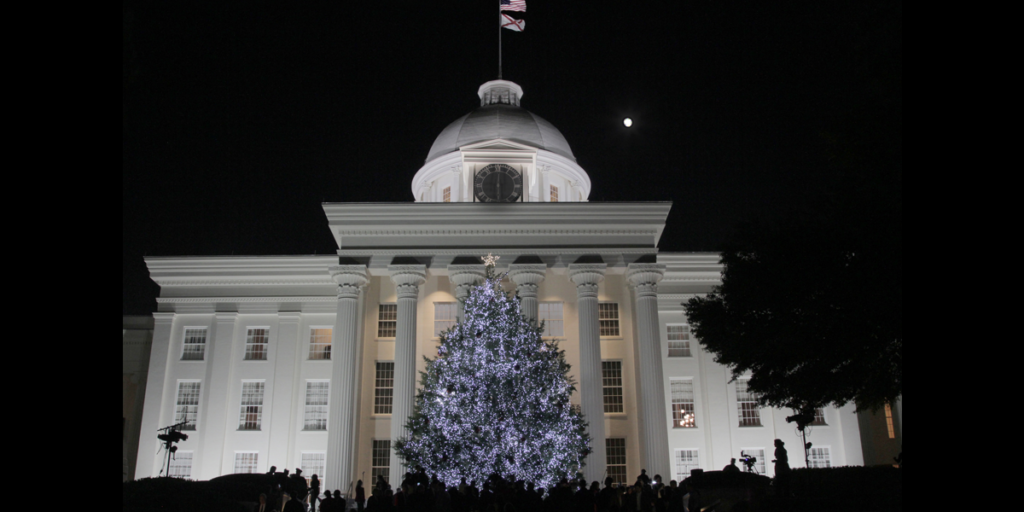Black farmer Antoine Mordican pleads for cannabis cultivator license

On Monday, the Alabama Medical Cannabis Commission (AMCC) heard presentations from farmers seeking to win a cannabis cultivator award. One of those was Antoine Mordican with Native Black Cultivation. Mordican is an Alabama hemp farmer seeking a license from the AMCC. “I am the CEO of Native Black Cultivation,” Mordican told the Commission. “I am a farmer, an engineer, and an advocate. I spoke in this very room (in 2021) to the Health Committee for passage of the medical cannabis bill.” “This Commission is diverse,” Mordican said, “25% of the licenses go to minorities.” The legislation requires that 25% of licenses go to minorities – a point that Mordican argued for when it passed the Legislature two and a half years ago. “I am originally from the west side of Chicago. I came down here in 2009 for an education,” Mordican said. “I have been farming since 2020 growing hemp.” “I and my ownership team are all residents of Alabama,” Mordican continued. “We have the skills to cultivate a quality product for the state of Alabama.” “I am a true Alabama-owned company,” Mordican said, alluding to rumors that some applicants are only frontmen for out-of-state marijuana companies. “My company is truly minority-owned. I am the CEO. I do not answer to anyone in my company. That is not true for some of the other applicants.” “Hopefully we will be considered for a license on Friday, December 1,” Mordican said. In the previous two rounds of award applications, Native Black Cultivation was denied a permit. Mordican explained that the AMCC cited him for not meeting its Alabama residency requirements. The AMCC defines an Alabama resident as someone who has lived in the state for 15 years. Mordican began his studies at Alabama A&M in 2009. He has resided in Alabama just a few months over 14 years; thus, he did not qualify as an Alabama entity. Mordican explained that he has addressed that by naming his two partners (both of whom have lived in the state for decades) so that the company fits the AMCC definition of Alabamian owned. “If you look at the Alabama Medical Cannabis website we have overwhelming public support for our application,” Mordican said. “The people of Alabama have spoken. I think you should take that into consideration.” “It is critical that we have minority participation in the state,” Mordican said. “We will be an asset for the state and the people of Alabama.” Marty Schleper, founder and president of Alabama Cannabis Coalition, publicly supported Mordican. Schleper wrote on Facebook, “What an honor and a privilege to be in Room 200 of the Alabama House and hear and see the presentation of Antoine Mordican, a husband and father, and he so deserves a medical Cannabis license in Alabama. Antoine is humble and gracious, he has always impressed me. I am so proud of him and pray that God holds him in the palm of His hand.” Mordican also urged that HBCUs (Historically Black Colleges and Universities) be involved in the marijuana program. “Alabama A&M is part of the hemp program,” Mordican said. “Alabama State has been part of the hemp program.” Mordican explained that his company has two facilities – a small one that he can put into cultivation by the end of the month and a larger one that he will build. Mordican will utilize hydroponics in his marijuana grow facility. “I have been working on this for over a decade,” Mordican said. “It started as a research paper in my first year at Alabama A&M. Hydroponics was the way to go. At Native Black Farms, we grow indoors. Everything is grown hydroponically. I have a recirculation system to prevent there from being any waste.” The AMCC is expected to vote on the cultivator awards on Friday. The previous two rounds of awards were rescinded after failed applicants filed lawsuits objecting to the process, including the scoring of the applications.’ There is a maximum of twelve cultivator licenses that the Commission can award and just twelve applicants. Despite this, Native Black Cultivation was denied in both previous rounds of awards. The Commission is expected to also vote on the state testing laboratory, marijuana processor, and secure transporter licenses on Friday. Next week, the Commission will hear presentations from applicants for integrated facility licenses. Those license awards will not be made until December 12. To connect with the author of this story or to comment, email brandonmreporter@gmail.com.
Alabama Poarch Creek leader Stephanie Bryan is using her role to inspire her community

Elected as the first female political leader to tribal chair and CEO of the Poarch Band of Creek Indians in 2014, Stephanie Bryan possesses traits that make a strong leader: passion, vision, and drive. Bryan was raised on the Poarch Band of Creek Indian reservation in Atmore and understands the importance of helping her community grow. “My passion and drive every day is driven by being able to help people improve their quality of life, and that’s what motivates me every day,” she says. As the chair and CEO, Bryan’s role is diverse: Overseeing tribal government, public safety, the education department, Boys & Girls Club, federal contracting services, Wind Creek Hospitality, etc. “I hope my legacy and my leadership is known that I truly care about people and I want to give people the tools that they need to succeed, and then inspire them to go and do great things,” she says. Power Moves: Stephanie Bryan leads the Poarch Band of Creek Indians efforts in Alabama from Alabama News Center on Vimeo. Republished with the permission of The Alabama News Center.
Alabama House Rules Chair: Legislators to look at gambling, vouchers, workforce

Ralph Chapoco, Alabama Reflector The chair of the powerful Alabama House Rules Committee Wednesday said legislators would look at gambling, charter and voucher programs and the labor shortage in the legislative session scheduled to begin in February. Rep. Joe Lovvorn, R-Auburn, the chair of the House Rules Committee, told county commissioners and directors at the Association of County Commissions of Alabama conference in Auburn Wednesday that the state lacked a uniform approach to gambling. “Anybody had any conversations or thoughts on gambling — we all do,” he said. “Each of your counties have different aspects. Every county in the state has different thoughts of what is legal and what is illegal.” Both lotteries and games of chance are forbidden by the Alabama Constitution. Local amendments allowed for electronic bingo, but the Alabama Supreme Court has read those amendments in narrow ways, making much if not all of the gambling in the state illegal. The state constitution does not affect the Poarch Band of Creek Indians, a federally recognized tribe that operates casinos in Atmore, Montgomery, and Wetumpka. Alabama is the last state east of the Mississippi without a lottery. Attempts by the Legislature to establish a lottery or regulate gambling have fallen apart over mistrust between the Poarch Band and dog track operators and disputes over where legal gambling should be located. Then-Senate President Pro Tem Del Marsh, R-Anniston, proposed a bill in 2021 that in its initial form would have created a state lottery, authorized gambling at certain locations in the state, and allowed sports betting. It collapsed amid disputes among House Republicans over the scope of the bill. No gambling bill has come as close to passage since. Lovvorn Wednesday denounced gambling, saying it was happening in Alabama without the regulatory infrastructure in place to oversee the industry. “We have a lot of quasi-legal activity going on in our state that is being operated by people that may not be the best public stewards, that may not follow the rules that are already in place,” he said. “And a lot of them are out of state, and our rules dealing with gaming are not strong enough.” Lovvorn referred to Alabama residents purchasing lottery tickets but said no one knows who is regulating those with the winning tickets or allocating the money to those who guessed the matching numbers. From there, he pivoted to other types of gambling which he took issue with and that had little regulation in place. “These slot machines are popping up everywhere,” he said. “A lot of them are made and manufactured and maintained by companies here in Alabama. If we want to have this type of gaming, that is something for the people to decide.” Ethics is another issue that legislators want to address. Rep. Matt Simpson, R-Daphne has taken the lead as chair of the House Ethics and Campaign Finance. The committee has convened a handful of times to get background information on the history of the ethics laws developed for Alabama. Members will review the information and use it to draft legislation to update the ethics rules for elected officials. “We need to clarify that, so we all know what rules to follow,” Lovvorn said. Lovvorn also said the Legislature would look at education issues. “The governor has laid out a plan where she wants to have an education savings account, often called a voucher program, that allows parents to use state funds to send their children to a school of their choice,” he said. A similar bill did not pass during the previous session. “We will be spending a lot of time speaking and working through how to make that work so that parents who are looking for an option that is better for children, how we can fix that and not impact other systems,” Lovvorn said. Alabama Reflector is part of States Newsroom, a network of news bureaus supported by grants and a coalition of donors as a 501c(3) public charity. Alabama Reflector maintains editorial independence. Follow Alabama Reflector on Facebook and Twitter.
Gov. Kay Ivey to light state Christmas Tree Friday night

On Friday, Gov. Kay Ivey will light the Capitol Christmas tree. The theme of this year’s ceremony is “Every Light a Prayer for Peace.” The official state Christmas tree is a 45-foot Eastern Red Cedar from Coosa County. The wars between Israel and Hamas and between Ukraine and Russia have made this Christmas more of a somber one. The Governor will be joined at the annual tree lighting ceremony by Alabama Department of Agriculture and Industries Commissioner Rick Pate, Brigadier General William Freeman, Garden Club of Alabama officials, and other distinguished guests and community leaders. Ivey wrote on X, “Holiday spirit is in the air with the arrival of the state Christmas tree — all thanks to the hard work of our volunteers and employees! Join me tonight at 5:30 p.m. for our tradition of lighting Alabama’s evergreen.” Sources are reporting to Alabama Today that a special red-suited guest from the North Pole could be in attendance. The tree lighting event will begin at 5:30 p.m. Musical performances will be provided by the 151st Army National Guard Band beginning at 5:00 p.m. The event will be at the Alabama State Capito at 600 Dexter Avenue in Montgomery. The tree arrived via I-65 on Monday. State workers and community members have been decorating it ahead of Friday’s event. The lighting of the Christmas tree is an annual tradition that many Alabama families enjoy every Christmas season. Another Christmas tradition in Montgomery is tours of the Governor’s mansion which has been decorated for the holiday. Holiday Candlelight Tours will occur on Monday, December 11 and Monday, December 18, from 5:30 p.m. to 7:30 p.m. For questions regarding the Holiday Candlelight Tours, contact the mansion staff at tours@mansion.alabama.gov or call 334-834-3022. Mansion tours are also available on Tuesdays and Thursdays (9 a.m., 10 a.m. and 2 p.m.). The Tuesday and Thursday tours are free self-guided tours that require a ticket to enter. Tickets are available at the Governor’s Mansion Gift Shop (30 Finley Avenue Montgomery, AL 36104) and the Sweet Home Alabama gift shop (401 Adams Avenue Montgomery, AL 36104). To connect with the author of this story or to comment, email brandonmreporter@gmail.com.
Gary Palmer elections bill passes Committee

On Thursday, Congressman Gary Palmer (R-AL06) announced that the House Committee on Administration has passed his legislation – the Citizen Ballot Protection Act. “Free and fair elections are something the citizens of this nation expect,” Rep. Palmer said. “However, slowly but surely, noncitizens around the country are being given the ability to participate in a process sacredly reserved for citizens. This creates endless opportunities for fraud, which will counteract restoring faith in the American election process,” said Rep. Palmer. “The American people should be certain their vote is not being erased by noncitizens. My bill passing in committee is the first step in amending the National Voter Registration Act of 1993 to give states the ability to verify the citizenship status of their voters when they register. I look forward to seeing the Citizen Ballot Protection Act being passed on the House floor.” Democrats across the country want to use the votes of noncitizens to advance their radical agenda. The Citizen Ballot Protection Act is the first step in protecting our elections by allowing states to verify the citizenship of voters when they register.https://t.co/BU6LOYjXjc — Gary Palmer (@USRepGaryPalmer) November 30, 2023 The U.S. Constitution gives states the responsibility of overseeing federal elections. Those state powers have been restricted by the Voting Rights Act of 1965 and, more recently, by the National Voter Registration Act of 1993 (also known as the “NVRA” or “motor voter law”). That federal legislation sets forth certain voter registration requirements for federal elections. Section 6 of the NVRA requires states to accept and use the U.S. Election Assistance Commission federal mail voter registration application form. It also permits states to create and use their own mail-based form as long as the form meets certain requirements. Section 9(b) of the NVRA lists the requirements for information collected by the federal election voter registration forms. The contents of the mail voter registration form may require information that: · Identifies the applicant, including their signature · Relates to a previous registration · Helps state election officials assess the eligibility of the applicant It also requires that that form shall include a statement that: · Lists each eligibility requirements, including citizenship · Confirms the applicant meets each requirement · Requires the signature of the applicant, under penalty of perjury The NVRA forbids the states to include any requirement for notarization or other formal authentication. All state modifications to the federal mail voter registration form are reviewed by the U.S. Election Assistance Commission (EAC). The EAC and courts have begun interpreting the prohibition of notarized or other formal authentications as justification for denying states the ability to require documentary proof of citizenship with the federal mail voter registration form. Some examples include: In 2013, the U.S. Supreme Court ruled that Arizona could not require documentary proof of citizenship on the federal registration form without EAC approval. In 2021, the United States District Court for the District of Columbia ruled that a previous 2016 EAC approval for Alabama, Georgia, and Kansas to include proof of citizenship violated the Administrative Procedures Act. Palmer’s bill – the Citizenship Ballot Protection Act, establishes the option for states to add a proof of citizenship requirement to their mail voter registration form. Palmer said that this: · Respects and upholds the role of states to administer federal elections. · Gives states the option to add more security to their voter registration process. · Helps states that have proof of citizenship requirements, such as Arizona, to streamline their registration process so both their version of the federal mail voter registration form and the state’s regular voter registration form can have the same review process. Palmer is serving his fifth term in the House, representing Alabama’s Sixth Congressional District. He is running for reelection. To connect with the author of this story or to comment, email brandonmreporter@gmail.com.
Personnel update: Kay Ivey appoints General David Pritchett as next leader of Alabama National Guard

On Thursday, Gov. Kay Ivey announced the retirement of Major General Sheryl Gordon. Ivey has appointed Brigadier General David Pritchett to replace Gordon as the head of the Alabama National Guard. Ivey commended General Gordon for her distinguished leadership as the adjutant general of the Alabama National Guard over the last six years. Gordon has led the Alabama National Guard since Governor Ivey appointed her in 2017. Ivey credited Gordon with helping land the F-35 Fighter Jets, providing security at the Southern Border, and responding in times of crisis. General Gordon ensured the Alabama National Guard always stood ready. “In 2017, when I tapped General Gordon to serve as adjutant general of the Alabama National Guard, I noted she was a trailblazer and visionary leader,” Gov. Ivey said. “Her record throughout her tenure has proven that to be true, and I commend her for her service. While it is important to applaud her for being Alabama’s first female adjutant general, I am proudest of her decades of military service and steadfast leadership. I know General Gordon will continue contributing to this state we call home and our nation.” In 2022, Governor Ivey requested, through the National Guard Bureau, an extension for General Gordon’s service through the end of 2023 so that she could see through certain leadership and project priorities. During the last year-plus, the governor and General Gordon have made preparations for the change of command at the Alabama National Guard to occur in January. “I’ve been blessed with a long career, and I am certainly proud of one constant effort, and that has been supporting and equipping the outstanding Soldiers and Airmen of Alabama,” said Gen. Gordon. “My greatest accomplishments have everything to do with the Guardsmen – the Guardsmen being promoted, awarded and achieving their dreams, goals, and potential. I thank Governor Ivey for entrusting me with this duty. It has truly been the highest honor and pleasure to serve the nation’s finest men and women, and I wish General Pritchett even greater success in doing the same. ‘It Shall Be Done!’” Governor Ivey is thrilled that Jefferson County native and Auburn alum General Pritchett will be returning to Alabama to serve as the adjutant general of the National Guard. He currently serves as director of the joint staff for the Wyoming National Guard. “We are fortunate to have General Pritchett return to Alabama to serve at the helm of the National Guard,” Ivey said. “His exceptional military experience and diverse leadership background will help us forge on with existing projects and missions and will help foster even more growth at the Alabama National Guard,” said Governor Ivey. “There is no better person to fill the shoes left by General Gordon, and I am proud General Pritchett will be joining us in the Ivey Administration. I look forward to working with him in the years to come to ensure Alabama always stands ready and is always there to protect and serve.” General Pritchett has received several awards and decorations during his wide-ranging military service, including many stints in Alabama. He received his military start in 1988 in the United States Marine Corps Reserve in Bessemer; however, he has spent most of his years serving in the Alabama National Guard. “I am grateful to Governor Ivey on my upcoming appointment to be the next adjutant general of the Alabama National Guard,” Gen. Pritchett said. “This organization has a storied past of service to our great state and country. Our Soldiers, Airmen, and Civilians are prepared to face any challenge to ensure the safety of our citizens, protect critical infrastructure, and, if necessary, to deploy overseas to fight and win our nation’s wars. I am both honored and humbled to be the next leader of the Alabama National Guard.” Pritchett has a bachelor’s degree from Auburn in Public Administration. He has a Master of Strategic Studies degree from the U.S. Army War College. His training is extensive and includes Field Artillery Officer Basic Course, Field Artillery Captains’ Career Course, Combined Arms and Services Staff School, Fire Support Coordinators Course, Field Artillery Pre-Command Course, Air Defense Artillery Reclassification Course, and Dual Status Commander’s Course. Pritchett will assume command on January 1, 2024. The official change of command ceremony will be Friday, January 5, 2024. General Pritchett’s wife, Julie, is a native of Fort Payne, and they have three adult children. To connect with the author of this story or to comment, email brandonmreporter@gmail.com.
Paul DeMarco: Alabama lawmakers could take up gambling in regular or special session in early 2024

There is a lot of inside baseball to understand the inner workings of the Alabama House of Representatives and Senate. Understanding the politics of how the sausage is made at the statehouse can mean the difference between a bill getting passed or ever making it out of committee. When there are pieces of legislation that state leaders want to really see become law, one sure way to ensure the votes are there to get the job done is for the governor to call a special session. In Alabama, the executive branch has a lot of power to direct state dollars and move legislation. By isolating a bill in a special session, a governor can focus lawmakers on one or more pieces of legislation they want to see passed. We have seen it in the past, including redistricting, incentives for economic development projects, and an increase of the gasoline tax. It may still be 2023, but the plans are already being laid for the upcoming 2024 meeting of the Alabama Legislature, and it could include gambling, that gets special treatment. With just four months to go, bills are being drafted, and lawmakers are playing the numbers game to see if they can get their legislation passed. And get ready to hear a lot about gambling as lobbyists are working on avoiding a traditional repeat performance. Year after year, there is bill after bill to attempt to get around the constitutional barriers to gambling in Alabama. Recent efforts have passed the Senate but have died in the Alabama House of Representatives. However, this time House and Senate leadership look to support a Constitutional Amendment to legalize and regulate gaming in the state. Ultimately, it will be voters who make a final decision, but only if legislators give them this opportunity. We will see if the opposition stops this bill before it makes it this far as they have in the past. Special sessions should only be called for the most pressing issues in our state. With that said, it should be easy to figure out that what we really need is a special session to address our state’s spree of violent crime. Public safety is the foremost responsibility of state leaders. Thus, Alabama leaders should look to make crime prevention and our criminal justice system first on the docket come the new year, either in a regular or special session, if that is what it takes. We will see soon enough in early 2024. Paul DeMarco is a former member of the Alabama House of Representatives and can be found on X, formerly Twitter, at @Paul_DeMarco.
Parker Moore: BEAD Program not a place for Joe Biden’s liberal agenda

Alabama stands at the threshold of a transformative era where broadband access can bridge gaps in education, healthcare, and economic opportunities. The Broadband Equity, Access, & Deployment (BEAD) Program presents an invaluable chance to make this vision a reality, particularly for our rural communities. However, in our pursuit of progress, we must ensure that this initiative remains true to its bipartisan essence and doesn’t become a battleground for political ideals. The Notice of Funding Opportunity (NOFO) for the BEAD Program, while well-intentioned, contains progressive recommendations that threaten the bipartisan spirit upon which this initiative was founded. Despite assurances from the Commerce Secretary that the agency was “not rate regulating, we are not price setting, and we are not requiring states to do that,” states have reported pressure from Washington to set price caps. While ensuring affordability is an important goal, following federal recommendations in this instance runs counter to the bill as passed by Congress and risks delaying broadband access across our state. The BEAD Program should not be a platform for the Biden administration to push its liberal agenda onto Alabama’s vital economic development projects. It is imperative that we maintain an open dialogue that includes all stakeholders, free from the constraints of rigid recommendations. Rate regulation risks pushing experienced internet providers out of the marketplace for broadband buildouts. This risk could delay broadband expansion in rural Alabama. We need a diverse array of experienced providers at the table, each contributing their unique expertise to determine the most efficient, effective, and equitable ways of expanding broadband access. Restricting our options, especially on a long-term basis, could impede the very progress we aim to achieve. Alabama’s economic growth should not be held hostage by political maneuvering. We need a bipartisan approach that fosters cooperation and innovation, embracing the strengths of both parties to drive our state forward. Our shared goal is to bring the benefits of broadband access to every Alabamian quickly and efficiently. Let’s prioritize collaboration, flexibility, and pragmatism, ensuring that the BEAD Program remains a beacon of bipartisan achievement, leading Alabama into a digitally connected future. Parker Moore has represented House District 4 since 2018. House District 4 includes Limestone and Morgan counties.
Florida bill would override prohibition on local bans for plastic bags

By Andrew Powell | The Center Square Contributor A Florida lawmaker is hoping a new bill recently filed will bring about an end to plastic bags and other single-use plastics if passed. Senate Bill 498 is sponsored by state Sen. Linda Stewart, D-Orlando. It would amend two Florida statutes and remove the preemption of local laws regarding the regulation of containers, wrappings, or plastic bags. The bill would also remove local laws regarding the use or sale of polystyrene products to the Florida Department of Agriculture and Consumer Services. Current Florida laws that would change if the bill passes say that the Legislature finds the regulation of recyclable materials crucial to the ongoing welfare of Florida’s natural habitats and its economy. The Department of Environmental Protection was statutorily tasked to review and update its 2010 report on retail plastic bags, and whether there is a need to change the regulation of single-use plastic from retail establishments. The Department released its updated report in December 2021 and stated that during 2020 there were around 47 million tons of municipal solid waste collected in Florida. While 42% of this waste was recycled, 50% ended up in landfills. The study found that between 11.7% and 13.6% of the solid waste collected was made up of single-use plastics. The report notes that while most end up in landfills or combusted in waste-to-energy facilities, a good portion becomes environmental litter. It further stated that single-use plastics have hurt wildlife and the environment, especially in waterways and along coastlines. In a survey conducted for the report, local governments, residents, retailers, manufacturers, and recycling facilities were asked if they believe that regulation is necessary for disposable plastics: 97% of local government agreed, as well as 67% of retailers, 93% of local residents, 100% of recycling facilities, and 25% of manufacturers. While a large number agreed that these plastics should be regulated, there was a significant difference in whether they thought that these regulations would help. NBC Miami reported on November 17, that there is growing concern that plastic bags are thwarting recycling efforts, with Miami-Dade Mayor Daniella Levine Cava telling the outlet that “plastic bags are the enemy of our recycling program.” Stewart filed an identical bill during the 2023 regular session, SB 498, but it died during its first round of committee hearings.
Texas AG Ken Paxton sues Pfizer citing misrepresentation of COVID-19 vaccine efficacy

By Bethany Blankley | The Center Square contributor Texas Attorney General Ken Paxton sued Pfizer on Thursday, alleging the pharmaceutical giant unlawfully misrepresented the effectiveness of its COVID-19 vaccine and attempted to censor public discussion about it. The lawsuit comes six months after his office launched an investigation into three pharmaceutical giants in May. It was filed in the District Court of Lubbock County, Texas, and solely names Pfizer., Inc., as the defendant. Paxton alleges that Pfizer engaged in false, deceptive, and misleading acts and practices by making unsupported claims about its COVID-19 vaccine in violation of the Texas Deceptive Trade Practices Act. Because of Pfizer’s claims, “placing their trust in Pfizer, hundreds of millions of Americans lined up to receive the vaccine,” Paxton’s 54-page brief states. “Contrary to Pfizer’s public statements, however, the pandemic did not end; it got worse. “More Americans died in 2021, with Pfizer’s vaccine available, than in 2020, the first year of the pandemic. This, in spite of the fact that the vast majority of Americans received a COVID-19 vaccine, with most taking Pfizer’s.” Paxton’s lawsuit adds: “By the end of 2021, official government reports showed that in at least some places, a greater percentage of the vaccinated were dying from COVID-19 than the unvaccinated. Pfizer’s vaccine plainly was not ‘95% effective.’” By October 2022, the U.S. Centers for Disease Control and Prevention reported that roughly 226.6 million people were fully vaccinated after receiving one Johnson & Johnson dose or two doses of Pfizer-BioNTech and Moderna vaccines, the New York Times reported. Another more than 111 million people received additional booster shots at the time. The complaint notes that Pfizer’s efficacy claim was based on a “relative risk reduction” metric used during its initial, two-month clinical trial. Such metrics, according to the U.S. Food and Drug Administration, are misleading and “‘unduly influence[s]’ consumer choice.” It also states that Pfizer’s clinical trial “failed to measure whether the vaccine protects against transmission;” despite this, Pfizer “embarked on a campaign to intimidate the public into getting the vaccine as a necessary measure to protect their loved ones.” When efficacy failed, “Pfizer then pivoted to silencing truth-tellers,” Paxton argues. The brief states, “How did Pfizer respond when it became apparent that its vaccine was failing and the viability of its cash cow was threatened? By intimidating those spreading the truth, and by conspiring to censor its critics. Pfizer labeled as ‘criminals’ those who spread facts about the vaccine. It accused them of spreading ‘misinformation.’ And it coerced social media platforms to silence prominent truth-tellers.” The lawsuit follows an investigation Paxton launched into Pfizer, Moderna, and Johnson & Johnson in May to determine if the companies engaged in gain-of-function research and misled the public about their practices. The investigation sought to determine if the companies misrepresented the efficacy of their COVID-19 vaccines and violated the Texas Deceptive Trade Practices Act. Investigators also looked into potential manipulation of vaccine trial data and the “relative risk reduction” method that was used instead of “absolute risk reduction” method. Paxton’s lawsuit stems from information it received after sending Civil Investigative Demands to the pharmaceutical giants. The COVID-lockdown era “was a deeply challenging time for Americans,” Paxton said when launching the investigation. “If any company illegally took advantage of consumers during this period or compromised people’s safety to increase their profits, they will be held responsible. If public health policy was developed on the basis of flawed or misleading research, the public must know. The catastrophic effects of the pandemic and subsequent interventions forced on our country and citizens deserve intense scrutiny, and we are pursuing any hint of wrongdoing to the fullest.” The federal government under former President Donald Trump entered into a $1.9 billion agreement with Pfizer, which was approved by the U.S. Food and Drug Administration on Dec. 11, 2020. Trump pushed the Pfizer-BioNTech COVID-19 vaccine through what he called “Operation Warp Speed,” making it available through Emergency Use Authorization as an experimental drug. Operation Warp Speed spent $12.4 billion on the vaccines, TIME reported. As Pfizer declared its vaccine was “95% effective,” on Dec. 17, 2020, Trump tweeted, “The Vaccine and the Vaccine rollout are getting the best of reviews. Moving along really well. Get those ‘shots’ everyone!” After he lost his reelection, at an RNC event at Mar-a-Lago in April 2021, Trump said everyone should refer to the COVID-19 vaccines as the “Trumpcine.” In a January 2022 interview, he said the “vaccines saved tens of millions throughout the world.” His former White House domestic policy advisor Joe Grogan also said Trump “handed [President Joe] Biden three vaccines,” TIME reported. “Biden is just really making our COVID response look a lot better than the media gave us credit for.” Trump continues to take credit for the vaccines, arguing they are effective and saved lives. Republished with the permission of The Center Square.


